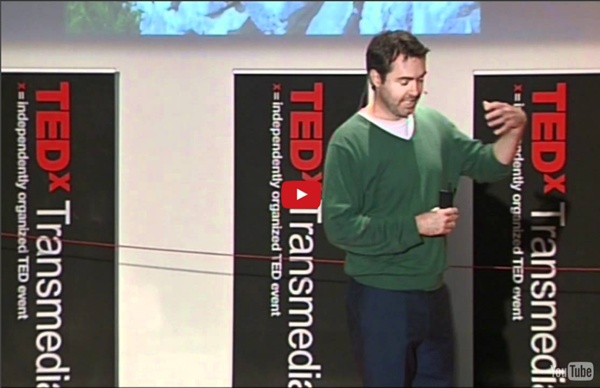



Peter Diamandis: Abundance is our future | Nouveaux paradigmes Chaîne de TEDxTalks Musician Scott Mescudi, aka Kid Cudi, returns to his high school to talk about growing up and his career path in the music industry. Born Scott Ramon Seguro Mescudi in Cleveland, Kid Cudi began rapping while attending Shaker Heights High School and later Solon High School. In 2004, Kid Cudi moved to Brooklyn, NY to pursue his rap career. He released his first mixtape, “A Kid Named Cudi,” in 2008. The mixtape earned Kanye West’s attention, leading him to sign Cudi to his GOOD Music imprint. This talk was given at a TEDx event using the TED conference format but independently organized by a local community.
TEDxNewWallStreet - 03/11/2012 TEDxNewWallStreet explores moving banking from the Industrial Age, into the Information Age. In 2009, Marc Andreessen remarked "banking is just information science." Inspired by Marc's words, Bruce Cahan and the Team set out to organize TEDxNewWallStreet to explore a banking system different than the Industrial Age system we inherited. What if Silicon Valley or other technology clusters grew New Wall Streets, on quite different terms than exist in New York? How would they spearhead technology in faster, cheaper, more transparent and accountable ways that contrast with the recent (and recurring) issues of the game as defined and played on old Wall Street? Let's move beyond pundits who deflect true innovation and reinforce a cynical inevitability by portraying bankers and banking as forever unhealthy or worse. Such a paradigm is not inevitable.
TEDx - Mike Horn : explorer les limites [vidéo] La conférence TED (Technology, Entertainment and Design) définit sa mission comme « propagateur d’idées ». TEDx est un programme qui permet aux écoles, aux entreprises, aux bibliothèques ou aux groupes d’amis de profiter d’une expérience similaire à celle de TED par le biais d’événements qu’ils organisent eux-mêmes. Le thème de cet événement était « Explore« . Regardez cette vidéo et buvez les paroles de Mike Horn. Je ne me prends pas habituellement au sérieux, mais ce que nous faisons parfois est sérieux. On m’a dit que j’avais seulement 20 minutes. J’ai étudié la psychologie du sport à l’université en Afrique du Sud. Une semaine plus tard, j’ai réalisé que ce n’était pas ce qui me rendait heureux. Je suis arrivé en Suisse et c’est là que ma vie d’explorateur a commencé, en passant de ‘avoir tout’ à ‘avoir rien’ et découvrir que c’est ce qui fait la liberté. Je vais vous poser une question et elle est importante : qu’est qui fait que vous êtes vous ? Je n’ai pas peur de perdre.